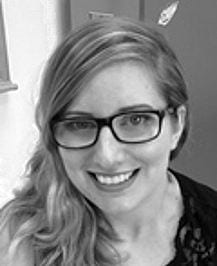Nina POWELL and Stuart DERBYSHIRE
Department of Psychology, Faculty of Arts and Social Sciences (FASS)
Nina and Stuart provide an overview of their Learning Community’s project, where they unpack what is understood by being a “reflective” educator, including the benefits as well as challenges that come about from an emphasis on reflective education.
 Photo courtesy of NUS Image Bank
Photo courtesy of NUS Image Bank
Powell, N., & Derbyshire, S. (2023, July 25). Being a reflective educator: What does it mean, and what are the limitations to being reflective. Teaching Connections. https://blog.nus.edu.sg/teachingconnections/2023/07/25/being-a-reflective-educator-what-does-it-mean-and-what-are-the-limitations-to-being-reflective/
This article is the product of the TEG Learning Community (LC) project “Becoming a Reflective Educator”. From 2020-2022, a team of academic faculty, postgraduates, and teaching assistants (TAs) from various disciplines (including history, psychology, and theatre studies), examined the meaning of “reflective educator”. We were motivated to examine reflective education because ideal educators are often described as “reflective” in career development contexts (Brookfield, 1998). “Reflective”, however, is rarely defined. Based on our observations, those using “reflective” tend to rely on an intuitive, self-evident meaning, which might not be shared or understood by their audience. Therefore, we set out to unpack and define what is understood by “reflective” to add clarity to educators’ career development, and to develop our own understanding of what constitutes good educational practice. Below, we summarise the key findings, including the benefits of a reflective educational practice as well as the challenges that arise from an emphasis on reflective education.
Being Reflective Is Generally Positive
In reading what other educators have said about reflective education (including Brookfield, 1995, 1998; Furedi, 2011, and Hayes, 2009, 2019), there is agreement that reflecting on your teaching practice is generally positive. Brookfield (1995) suggests that successful reflection builds on the following four lenses: students’ perceptions, colleagues’ perceptions, the educator’s own personal experience, and pedagogical theory and research. Those four lenses facilitate identifying and checking the validity of an educator’s assumptions about their educational practice. Checking and challenging those assumptions cultivates a practice that involves explicitly identifying the “why” behind teaching practices. Students gain a better understanding of the intentions and motivations behind educational practice when the “why” is clearly elucidated, and are then better able to respond to the educational demands placed upon them.
Being reflective also opens educators to feedback from colleagues and students to facilitate self-awareness and critical evaluation on the way to cultivating better educational practice. Such reflective practice is likely to be more useful and holistic than the traditional narrow emphasis on student feedback. In short, educators who think about and reflect on the value of their practice and seek the critical input of other colleagues and students, are likely to improve their practice and enhance the educational experience.
The Limits to Reflection
Despite the accepted benefits of reflection, it is also accepted that reflection is a broad practice with uncertain guiding principles or values. Without explicit values to guide reflection, an educator’s reflection on their practice can readily conform with ideas that are contradictory, and maybe even antithetical to education. It is, for example, not easy to encourage students to be creative and critical as well as provide students with clear and predictable content, which maps to assessments that test content rather than stretch minds. An educator reflecting on their practice can decide that they need to place more emphasis on creativity and structure. They will not be able to decide which is more important because reflection cannot answer the question of what education is for, or how it should be approached.
Higher education (HE) is no longer the reserve of a small number of young people on their way to being the next generation of scholars or intellectuals. Today, HE is overwhelmingly marketed to students as a means of improving their employability and income. There is uncertainty about whether HE should provide knowledge to pursue scholarship, or impart skills for the workplace, encourage entrepreneurship, inculcate moral values for being a good citizen, do all those things, or do something else entirely. Reflection is value-free, and so no amount of reflection will resolve that tension, which creates a danger that the “why” an educator settles on will not align with educational goals.
Contemporary scholars (Furedi, 2011; Ecclestone & Hayes, 2009) argue that educators have shifted their “why”, because 21st Century HE values include emphasising feelings over intellect, wellbeing over struggle, self-knowledge over disciplinary knowledge, and useable skills over abstract reasoning. The reflective educator examining their practices and considering those values is likely to assign easier reading material, engage students in projects that reflect their own lives, and assess the students on their practical abilities rather than the depth of their knowledge. We are agnostic on whether those shifts are appropriate for 21st Century HE, but we believe that educators should not merely treat their reflections, which will be influenced by concerns beyond delivering a good education, as intuitively good or useful without due examination.
Being reflective must also mean being critical and reasoned, and understanding that the “why” of education is not something that can be entirely resolved through individual reflection. Education is part of a wider societal effort that is understood and agreed collectively. The reflective educator will turn inwards to examine their practices, but will also turn outwards to consider the educational philosophy that explicitly expresses our collective educational values, goals, and aspirations. Each educator can then reflect usefully on their own practice and make changes to meet the collectively agreed HE aims. That does require, however, that we can and do collectively decide what education is for, which is something we will examine in a future article. Taken together, this Learning Community provided an opportunity for our team of educators to find greater clarity in the meaning of reflection, and adopt a context-dependent and values-driven approach to considering the uses and misuses of a reflective ethos in our teaching practices.
Becoming a Reflective Educator
If you’re keen to learn more about reflective practice in education, we would like to invite you to attend our upcoming workshop. Click on the banner below for more information and to register for the workshop:
Acknowledgements
We would like to thank members of our TEG Learning Community for their immense contributions to the ideas behind this piece (in alphabetical order):
A/P Andrew HUI, Dr Donna BRUNERO, LIM Qi Min, Dr Rebekah WANIC, A/P Robin LOON, Russell LEE, and TAN Yia Chin
This Learning Community project was made possible due to the generous support of a Teaching Enhancement Grant (TEG) from the Centre for Development of Teaching and Learning (CDTL).
References
Brookfield, S. (1995). Becoming a critically reflective teacher. Jossey-Bass.
Brookfield, S. (1998). Critically reflective practice. Journal of Continuing Education in the Health Professions, 18(4), 197-205. https://doi.org/10.1002/chp.1340180402
Ecclestone, K., & Hayes, D. (2009). Changing the subject: the educational implications of developing emotional well-being. Oxford Review of Education, 35(3), 371–89. http://www.jstor.org/stable/27784567
Ecclestone, K., & Hayes, D. (2019). The dangerous rise of therapeutic education. Routledge.
Furedi, F. (2011). Wasted: Why education isn’t educating. Continuum.
 |
Nina POWELL is a Senior Lecturer in the NUS Department of Psychology and has been teaching in NUS since 2013. Her research focuses on judgment, certainty, and decision-making in children and adults, both in the context of moral decision-making and education. She teaches introductory psychology modules, and upper-level seminar modules on Moral Psychology and Historical Controversies in Psychology. She is also Deputy Director of Undergraduate Studies in Psychology, a member of CAFÉ (Career Advancement for FASS Educators), and the co-founder of MADE in Psych (Mentoring and Demystifying Education in Psychology). Nina can be reached at nina.powell@nus.edu.sg. |
 |
Stuart DERBYSHIRE is Associate Professor in the NUS Department of Psychology, and is also the Department’s Director of Undergraduate Studies. His primary research interests cover the study of pain, particular pain that occurs without obvious injury or disease, functional neuroimaging, and consciousness. Stuart can be reached at psydswg@nus.edu.sg. |


